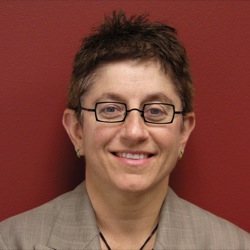
Gigi Sohn
Given his history of heading up telecomm industry lobbing groups, there was some suspicion of Wheeler’s appointment amongst some in the media reform community. In April Public Knowledge released a statement supportive of Wheeler, authored by Sohn. She wrote, “I believe that he will be an independent, proactive Chairman who will not allow the FCC to become irrelevant as broadband becomes the dominant mode of communication in this country.”
Acknowledging that while she may disagree with him at times, Sohn said, “I also have no doubt that Tom will have an open door and an open mind, and that ultimately his decisions will be based on what he genuinely believes is best for the public interest, not any particular industry.”
Although it is too early to predict what her influence will be at the FCC, it is hard to argue that it is a bad thing to have an open internet advocate like Sohn having the chairman’s ear. The DC Circuit Court of Appeals is considering whether or not the FCC should be able to regulate broadband providers in order to prevent them from blocking otherwise legal website or from privileging some sites over others.
In explaining Public Knowledge’s support for the FCC’s nondiscrimination rule Sohn said, “If the Federal court decides that the FCC doesn’t have the power to create open internet rules, there could be a residual impact on the FCC’s ability to make decisions that involve the future of what has now become our main communications tool.”
Principles of open internet could be pivotal for radio in the digital era, since nondiscrimination rules could stand between a new, innovative online service reaching listeners, or being blocked in favor of a well-heeled incumbent like iHeartRadio or iTunes Radio. This is even more important with regard to mobile internet, where bandwidth limits have more effect on the ability of listeners to choose and hear the stations of their choice. If a given wireless provider were to make a deal to provide customers access to particular streaming service without bandwidth limitations, or at a substantial discount, then all other services would be operating at an disadvantage.
The Commission still has a biennial review of media ownership rules to complete, and the future of the newspaper-broadcast cross-ownership rule is at stake. Sohn and Public Knowledge have been critical of media consolidation and its effects, even if they have not been as active in this arena as groups like Free Press. It is reasonable to think she may have some influence on this issue, as well.
Casey Rae, interim executive director of the Future of Music Coalition, said, “Future of Music Coalition has worked closely with Public Knowledge over the years to insure that technology remains open, accessible and affordable to musicians and other creators. We applaud Gigi’s service to the public interest and know she’ll continue to be a staunch defender of consumer rights and innovation at her new post.”
On leaving Public Knowledge, Sohn said “I leave Public Knowledge with a mixture of sadness and great pride. In late 2001, I started the organization with a tiny budget and free office space in Dupont Circle. Now Public Knowledge has 17 full time employees and more importantly, has a reputation as an effective, thoughtful and pragmatic communications and technology policy advocacy organization.”
Sohn’s last day at Public Knowledge is November 8. Long-time Public Knowledge staffers Michael Weinberg and Brooke Hunter will replace her as acting co-presidents.


